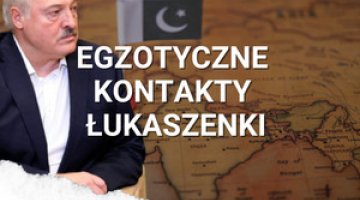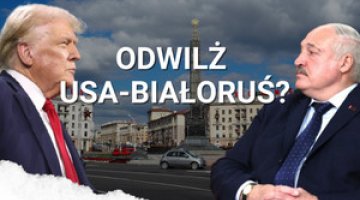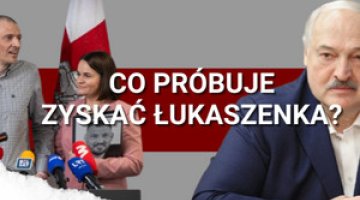Propaganda in the service of politics: 6th National Assembly of Belarus
On February 11-12, Minsk hosted the 6th National Assembly of Belarus (NAB), a mass gathering of the representatives of local authorities, business employees, scientific and cultural workers, and social organisations from all regions of the country; it is held periodically, once every few years. The meeting was attended by about 2,400 delegates and the highest state authorities, including Alexander Lukashenka. Representatives of the real opposition were not allowed to participate in the event. The formal purpose of the assembly is to approve the development plan of Belarus for the next five years, and this year there was an additional issue: to determine the pace and manner of amending the constitution.
Opening the NAB with a speech lasting several hours, Lukashenka once again accused the West of using last year's presidential election to overthrow what he considers to be the legitimate government by means of a "colour revolution”. He reiterated his statements about the military threat from NATO, also mentioning the direct threat posed by Poland and Lithuania while "operating under the umbrella of the US". He claimed the hostile actions of the West are motivated by a refusal to accept the independence of Belarus which, contrary to "foreign trends", has chosen its own path of development. At the same time he expressed gratitude towards Russia for the political and economic support it offered last year in the face of mass demonstrations, and stressed the need for mutual support when fighting against externally inspired "colour revolutions”. He also stressed the key importance of the Russian language in Belarus and the close cultural and historical ties between the two nations. He also pledged to continue the process of integration in the Union State, assuming equal conditions, including the price of oil and gas. Lukashenka expressed gratitude to China for its assistance and provided assurances that Belarus would continue to participate in the Silk Road project.
Referring to the constitutional reform he has been declaring over several months, Lukashenka stressed the need for a new division of powers among the various branches of government. He described the president's current authority as "dangerously expansive" should there be a change at this position, especially if an opposition representative assumed the office. He also announced that a new basic law would be completed by the end of this year and then submitted to a referendum, which could be combined with the local council elections in January 2022. In addition, he supported the idea of transforming the NAB into a constitutional body as "the highest form of representation of the people." This concept was reflected in a resolution adopted at the end of the session, which appointed a constitutional commission responsible for preparing political changes. Lukashenka also recommended that verification of the legal status of registered parties be completed by the end of June, and he was sceptical about the prospects of a system of proportional representation replacing the current majority system.
In his closing speech the president expressed support for the idea (which has been under discussion for several weeks now) of establishing a new national holiday called National Unity Day. He declined to name a date for it, though. Among the proposals were September 17 and November 14 – both related to the annexation of so-called Western Belarus to the Byelorussian SSR in 1939.
Numerous speeches made by NAB delegates featured the Foreign Minister Vladimir Makei, who deemed the current constitution's provision on Belarus's pursuit of neutrality insufficient for the current situation. In his opinion, this means it is necessary to revise the current concept of the country's foreign policy.
Commentary
- The NAB, which is organised every four or five years, is a form of mass propaganda in the Belarusian political system, aimed at demonstrating society's support for government policy. Currently, in the context of last year's mass post-election demonstrations against the regime and the continuing dissatisfaction of the majority of society, this event has additionally become a manifestation of the loyalty which the country's nomenklatura, security apparatus and the regime's intellectual elite have towards to Lukashenka (who is regarded as the guarantor of independence). Consequently, the criteria for selecting delegates became more demanding in order to avoid critical speeches, especially from opponents of the regime (who were denied participation in the event). One example of the tougher new criteria is that the previous practice of company employees electing representatives has been abandoned. Only a few representatives of the licensed opposition denouncing the street demonstrations were allowed to attend the assembly.
- Both of Lukashenka’s speeches were based on theories which he has repeated for years, referring to the need for the internal consolidation of all citizens in the face of external threats, and avoiding radical changes which he claims could lead to a repetition of the deep crisis of the 1990s. The schematic narrative once again shows the lack of a new strategy adequate to the current situation, where the majority of society expects fundamental changes, including Lukashenka stepping down. The regime will thus continue to base its policy on repression against active opponents (including the continuation of building an oppressive police state) and on intimidating Belarusians with the risk of losing stability and social security (which is in fact gradually being reduced anyway).
- The plan of so-called constitutional reform presented at the assembly indicates that the government is attempting to drag this difficult and risky business out as much as possible. This is facilitated by the current reduced pressure from Moscow (caused in part by the difficult social situation in Russia itself). Towards the end of 2020, Russia had still been demanding a constitutional weakening of the position of the Belarusian president. Lukashenka will allow the office of the president to be stripped of some of its powers only should he himself step down from the post, an event which would have to be accompanied by numerous guarantees of his personal safety and maintaining the dominant influence on state policy. The most likely scenario seems to be that the draft constitution will preserve the status quo, with only feigned changes introduced to the system, and the announced referendum, as intended, will merely become another demonstration of the regime's power. Currently Lukashenka is convinced that the system is sufficiently resistant to internal shocks and that he has a strong position in talks with the Kremlin. Hence, unlike in his previous public appearances, this time he was in a clearly positive mood and indulged in numerous anecdotes.
- The strong pro-Russian accents in Lukashenka’s speeches confirm the trend observed since the outbreak of the mass post-election protests in August of 2020 which shows a renewed friendship between Minsk and Moscow; this is in part conditioned by Belarus's isolation in relations with the West. In this context, significance should be granted to the announced abandonment of the constitutional provision on the pursuit of neutrality, which would be a symbolic confirmation of the clear pandering to Moscow. A similar significance is also attached to the project of introducing the Day of National Unity, which, if associated with the events of 1939, will corroborate the Russian vision of history. The regime, deprived of any real alternative through its pro-Russian narrative and decisions favourable to Moscow's interests, is seeking additional support in the form of loans and energy subsidies, which are necessary to sustain an economy threatened with collapse. The shape of Belarus's relations with Russia will probably be discussed during the meeting of the presidents of the two countries announced for the end of February in Sochi (the last one took place on September 14, last year).




